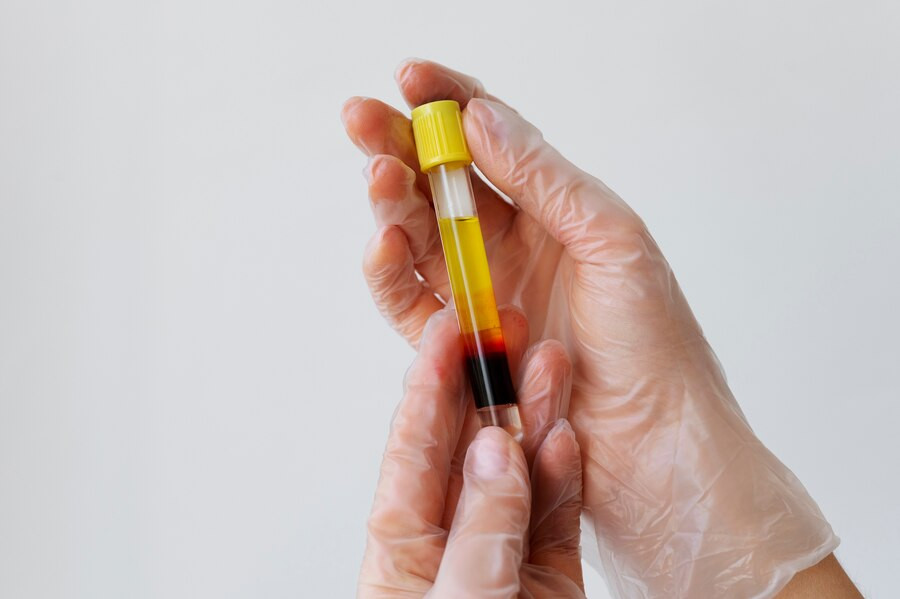Vitamin D is one of the vitamins that the body requires and is critical for human health. Vitamin D deficiency can cause a variety of negative health effects, including poor bone health, compromised immune function, depression, muscle weakness and fatigue, cardiovascular problems, an increased risk of chronic diseases, tooth decay, and stunted growth.
To prevent vitamin D deficiency, spend time in the sun, eat vitamin D-rich foods, and take vitamin D supplements. However, taking vitamin D supplements should be done with caution. Why is this so? See the review in the following article.
Why should you check your vitamin D levels before taking supplements?
Taking vitamin D supplements without first determining the vitamin's levels in the body is risky and ineffective. Here are the reasons why you should check your vitamin D levels before taking supplements:
1. Determining the appropriate supplement needs
Everyone's vitamin D supplement requirements vary depending on age, gender, health status, sun exposure, and food consumption. A vitamin D level test can determine if you are deficient, adequate, or excessive.
If the test reveals that you are deficient, it can help you determine the appropriate supplement dosage to avoid underdosing or overdosing.
2. Avoiding the risk of poisoning
An overdose of vitamin D can lead to poisoning known as hypervitaminosis D. This condition can have serious consequences because vitamin D is a fat-soluble vitamin that can build up in the body.
Vitamin D toxicity causes the body to experience several symptoms, such as:
- Decreased appetite
- Nausea and vomiting
- Constipation
- Dehydration
- Increased thirst
- Increased frequency of urination
- Confusion and fatigue
- Muscle weakness and difficulty walking
- Bone pain
- Kidney stones
To avoid vitamin D poisoning, you should get a vitamin D level test. A vitamin D level test detects the presence of 25-hydroxyvitamin D (25(OH)D) in the blood, which is the primary indicator of vitamin D status. This helps to avoid overdosing, which can lead to poisoning.
3. Effectiveness of supplements
Knowing the actual vitamin D levels makes supplements more effective in correcting deficiencies. Some people may require different supplement forms or dosages to ensure optimal absorption, depending on their age, condition, health, and genetics.
4. Monitoring and adjustment
Knowing your exact vitamin D levels allows your doctor to adjust the supplement dosage to meet your specific needs. If your vitamin D levels remain too low or too high, your doctor can adjust the dosage of the supplements you are taking to achieve the best results.
Regular monitoring also ensures that vitamin D levels stay within a healthy range, reducing the risk of excess in the long run.
5. Supports bone health and immunity
A blood test for vitamin D levels can help you ensure you're getting enough to maintain good bone health.
Without enough vitamin D, you are more likely to develop osteoporosis, in which bones become brittle and prone to fracture, as well as osteomalacia.If you're not sure how much vitamin D you need or if you should take supplements, consult your doctor.
If you need medical advice or consultation, you can either visit a doctor or make use of the consultation features that are available in the Ai Care application by downloading the Ai Care application from the App Store or Play Store.
Looking for more information about nutrition, food, and other diet tips? Click here!
- dr. Monica Salim
National Institute of Health (2023). Vitamin D. Available from: https://ods.od.nih.gov/factsheets/VitaminD-HealthProfessional/
Health Direct (2022). Vitamin D test. Available from: https://www.healthdirect.gov.au/vitamin-d-test
Katherine Zeratsky, R.D., L.D. (2022). What is vitamin D toxicity? Should I be worried about taking supplements?. Available from: https://www.mayoclinic.org/healthy-lifestyle/nutrition-and-healthy-eating/expert-answers/vitamin-d-toxicity/faq-20058108
Cleveland Clinic (2023). Vitamin D Toxicity (Hypervitaminosis D). Available from: https://my.clevelandclinic.org/health/diseases/24750-vitamin-d-toxicity-hypervitaminosis-d
NHS UK (2020). Vitamin D. Available from: https://www.nhs.uk/conditions/vitamins-and-minerals/vitamin-d/
Yale Medicine. Vitamin D Deficiency. Available from: https://www.yalemedicine.org/conditions/vitamin-d-deficiency











